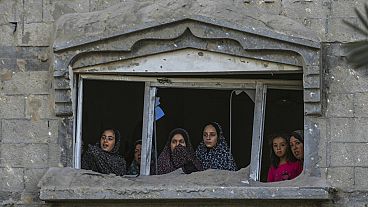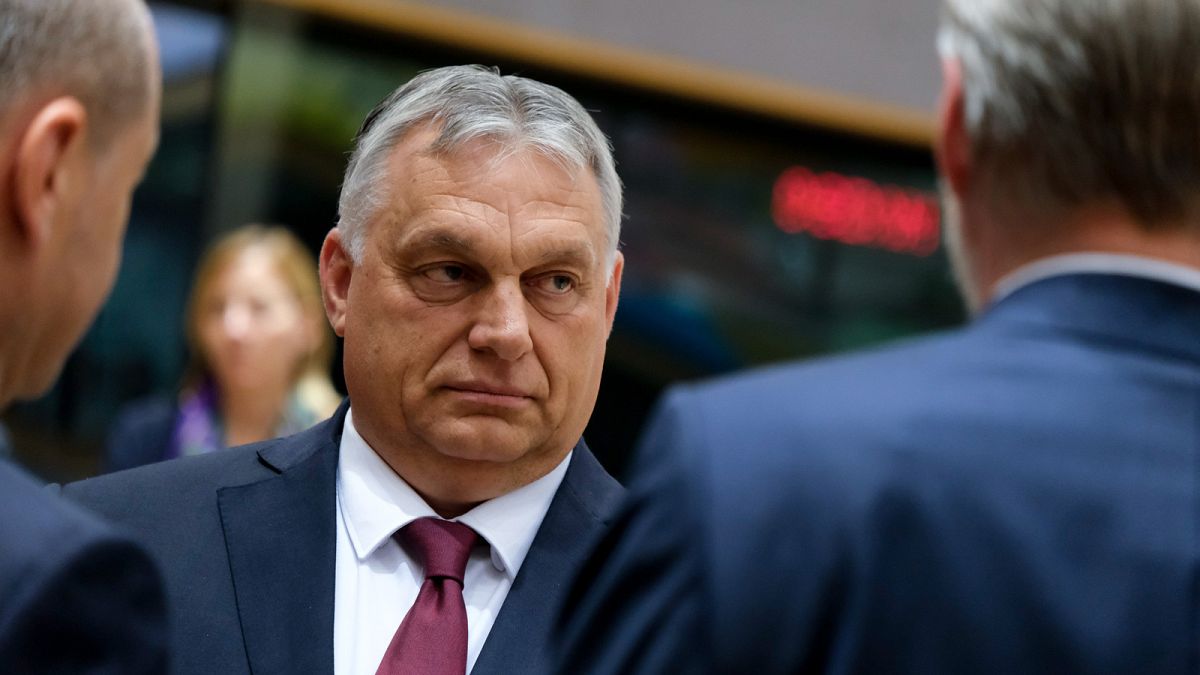Budapest says its National Card scheme takes EU rules and potential security risks into account.
The Hungarian government has responded to Brussels’ request for an explanation over its easing of entry requirements for Russian and Belarusian nationals, dismissing concerns it would undermine the security of the Schengen border-free travel zone.
In a letter shared by the Hungarian minister for European affairs on social media channel X on Wednesday, Hungary’s home affairs minister Sándor Pintér claims that the National Card scheme - which was recently extended to Russians and Belarusians - would be issued "in accordance with the relevant EU framework and with due consideration of the security risks involved".
"Hungary continues to place great emphasis on the protection of its national security and the security of the Schengen area as a whole," Pintér also wrote.
Hungary’s National Card immigration scheme - now open to Russia and Belarus as well as Ukraine and several Western Balkan countries - allows "guest workers" to stay in the country for two years, renewable by an additional three, and can pave the way to permanent residency.
The European Commissioner for Home Affairs, Ylva Johansson, wrote to her Hungarian counterpart on August 1 expressing concerns that recent changes to the scheme could give "potential Russian spies and saboteurs easy EU access," jeopardising the security of the passport-free Schengen zone.
"If their easy access scheme is a risk, we will act," Johansson warned in her letter.
The bloc fears that including Russians and Belarusians in the scheme could lead to a "de facto circumvention" of the measures it has put in safe to shield itself from Russian security threats since Moscow launched its all-out invasion of Ukraine in 2022.
These measures include the suspension of a visa facilitation agreement with Russia, the closure of airspace to Russian-operated flights and stringent restrictions on land travel into bordering EU countries.
But the Hungarian government says applicants will undergo the same rigorous screening process as for other permits, pointing out that the Commission has never voiced concerns about the processes it currently has in place.
It adds that Hungary is responsible for only a "fraction" of the residence permits currently issued to Russian and Belarusian nationals across the EU's 27 member states.
'We will act'
Commissioner Johansson had given the Hungarian government until August 19 to respond to her letter, a deadline that was missed by two days. A Commission spokesperson confirmed on Tuesday (August 20) that it was "in touch with the Hungarian authorities" and expecting its reply.
"It is very important we don't jump to any conclusion yet because it is still too early to determine what (...) implications this scheme has when it comes to EU law," the spokesperson explained.
"When it comes to our acquis and the Schengen rules, Hungary is bound at all times by the Schengen rules, and this means there needs to be very thorough checks, not only if you are in the possession of a visa or a valid residence permit, but you need to have security checks that are thorough in place."
The executive is now expected to assess the responses Budapest has provided to a range of questions provided by Johansson. She has made clear that the bloc is willing to act if the National Card Scheme poses a security risk.
At the heart of Brussels' concerns is a potential back door to the Schengen area - which removes border checks between 29 European countries - for individuals posing a serious security risk for the bloc.
While each EU country is free to design its own visa policy, the Commission could step in if it found that a country's decisions violate the common minimum rules imposed by Brussels.
Eight Nordic and Baltic countries - Denmark, Estonia, Finland, Iceland, Latvia, Lithuania, Norway, and Sweden - had also weighed in on the issue with a letter dated August 15 to Johansson, in which they express deep concern over the scheme and urge the Commission to respond.












